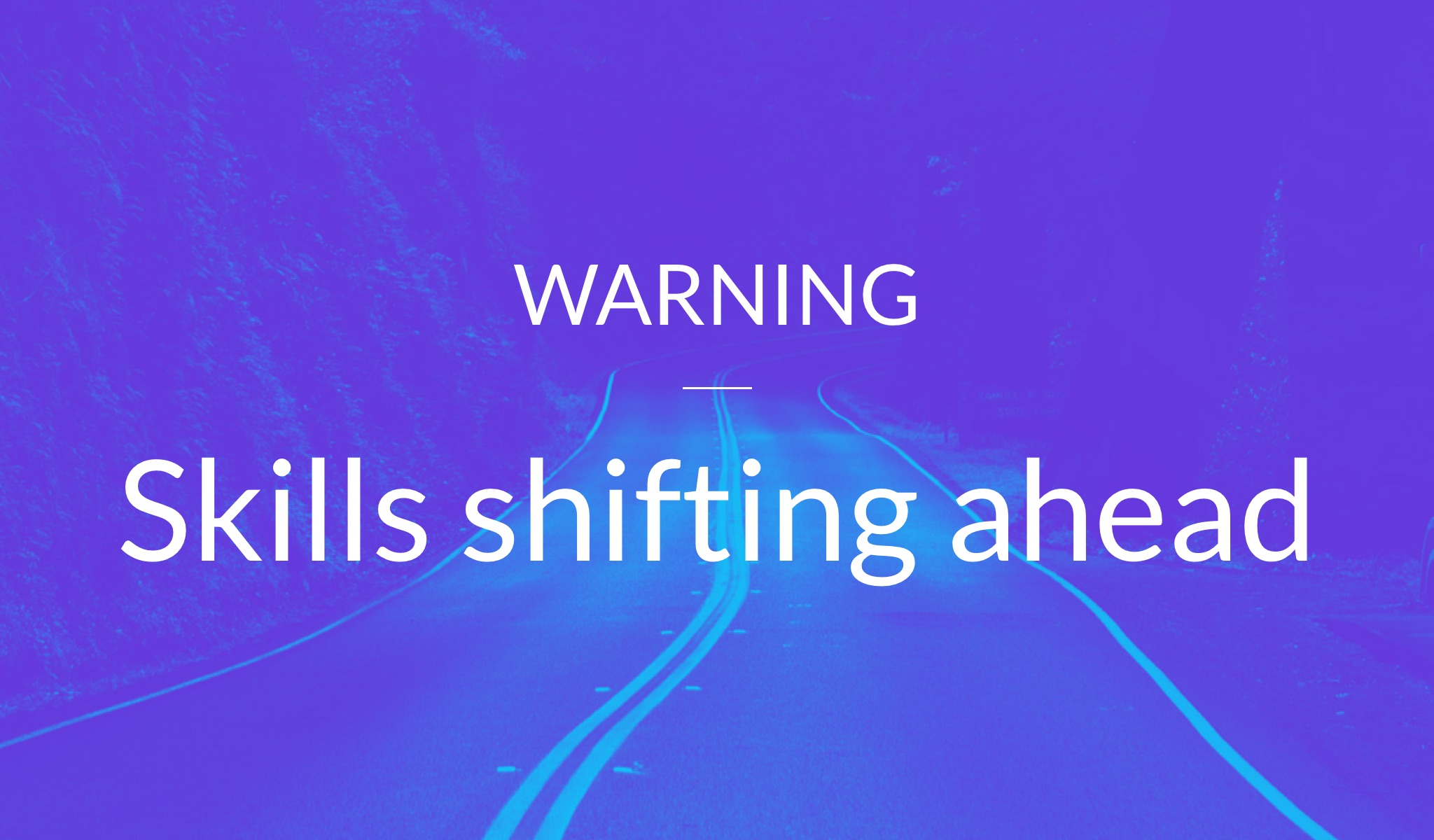Making future-proof skills a priority
Like an unsuspecting frog in slowly heating water, we tend to dismiss or downplay the impact of changes that build up over time, until it’s too late. For anyone aiming at mediocracy, keeping with the herd is a reasonable strategy, but when it come to career development - many high achievers still rely on outdated conceptions, and miss the warning signs of a seismic shift.
The irony is that the more technologically advanced your field is, the easier it is to fool yourself you already are future-proof.
The painful truth
In many respects:
- A software engineer is not necessarily safer than an Uber driver
- A project manager is not that different from an Amazon warehouse employee
- An Oncologist isn’t better protected than a customer support rep
The expiry dates might slightly differ, but all of them will face the somber music much sooner than they imagine.
Many sought-after professions still heavily relay on accumulated knowledge and successful application of well defined procedures. Two areas where humans can’t (and shouldn’t) compete with technology.
It gets even more alarming from a company’s perspective: well intended, yet myopic interpretation of the challenges ahead, lead to hiring based on yesterday’s needs, guaranteeing irrelevance and poor performance tomorrow.
This is not another doomsday prophecy but rather a wakeup call.
An invitation for reflection
- In what way do you add value today?
- Which skills allow you to add this value?
- Beyond your knowledge and applying repeatable processes, how do make an impact?
I know what your’e doing right now: rolling your eyes, thinking that can’t possibly apply to you, right? Well, just for the slight chance that it might, let’s try this:
A snap assessment
Think about your current role, and rate yourself (1 = not true)..(5 = very true):
- Your most impactful tasks require little collaboration with others
- Exclusive knowledge or higher efficiency make a star performer in your position
- In the last 24 months the way you work didn’t change significantly (excluding tools)
- Realistically, it would take no longer than 6 months to train a decent replacement for you
If you score above 12, the alarm bells should be loud and clear already. If your score was lower, don’t get your dancing shoes just yet. It only means you have more time to prepare. Note that this is true regardless of the industry you may operate in, and your seniority level.
If you’re still not convinced, consider the following example: When Netflix changed their strategy from a mail-order DVDs to online streaming, they already had a team of talented software engineers, which is widely considered a future-proof job. They thought so too, until more than 90% of them were fired. The type of challenges required to support the new strategy was different, and most of them did not demonstrate the mental flexibility, skills adaptability or any new ways of contributing to this new reality.
But wait, here comes the good news…
Staying relevant is largely in your hands
While we can’t predict the most desirable job titles of the coming years, we can already see which skills will become vital in such jobs:
- Navigating complexity & ambiguity
- Applying systems-thinking
- Improving decision-making: This has always been the mother of all skills, but as our challenges evolve, so should our mental tools to support them
- Collaborating and driving performance in teams
- Influencing without authority
- Learning continuously and sharing knowledge effectively
- Igniting curiosity and asking better questions
While most people will agree that the skills above are useful, very few realize the magnitude and impact they have, and even fewer people actively pursue ways acquire or improve them.
We live in culture that worships short-term thinking and immediate ROI. None of these critical skills can be calculated into a direct return on investment, and that’s okay: none of the things that really matter in life can be.
You can’t calculate the ROI of reading a bedtime story to your kid. You can’t measure the value of reduced frictions in a team and you can’t A/B test how one effective decision outperforms a poor one in the real world.
It’s time to accept that it’s on us, both as individuals and as organizations, to invest in meaningful long-term development and growth. To realize that most job titles and roles will lose their meaning (and purpose) sooner than we think.
If we want to make recruiting, performance management, and personal development meaningful - we have to go beyond recognizing the value of hard-to-measure skills.
We have to start saying no: No to employers who don’t recognize it, no to employees who don’t pay attention to it, and no to anyone who prioritizes immediate monetary gains above all else.
For anyone hoping to thrive in the decade ahead, developing these impact-multiplying skills is an imperative. One that is too often get pushed aside by the day-to-day demands, but one that is infinitely more impactful than meeting any pressing quarterly goal.
Make this discussion a priority: with yourself, your employer or employees. Find ways to acquire and practice these skills, and refuse to get sidetracked by short-term thinking.
These skills take time, effort and patience to adopt, both personally and for an organization as a whole, and they only make sense if you’re in it for the long game.
But at the end, playing the long game is the only game worth playing.
This article was previously published on LinkedIn and on Medium. If you find it insightful, you’re welcome to connect with me.
